Miniature Goldendoodle: Everything You Need to Know
Discover the Enchanting World of Mini Goldendoodles
From the intriguing influence of fading genes on their coat colors to the truth behind their reputed friendly and outgoing nature, we leave no stone unturned. Are Miniature Goldendoodles really as affable and sociable as they are believed to be?
How does their coat change as they grow, and what does this mean for potential owners?
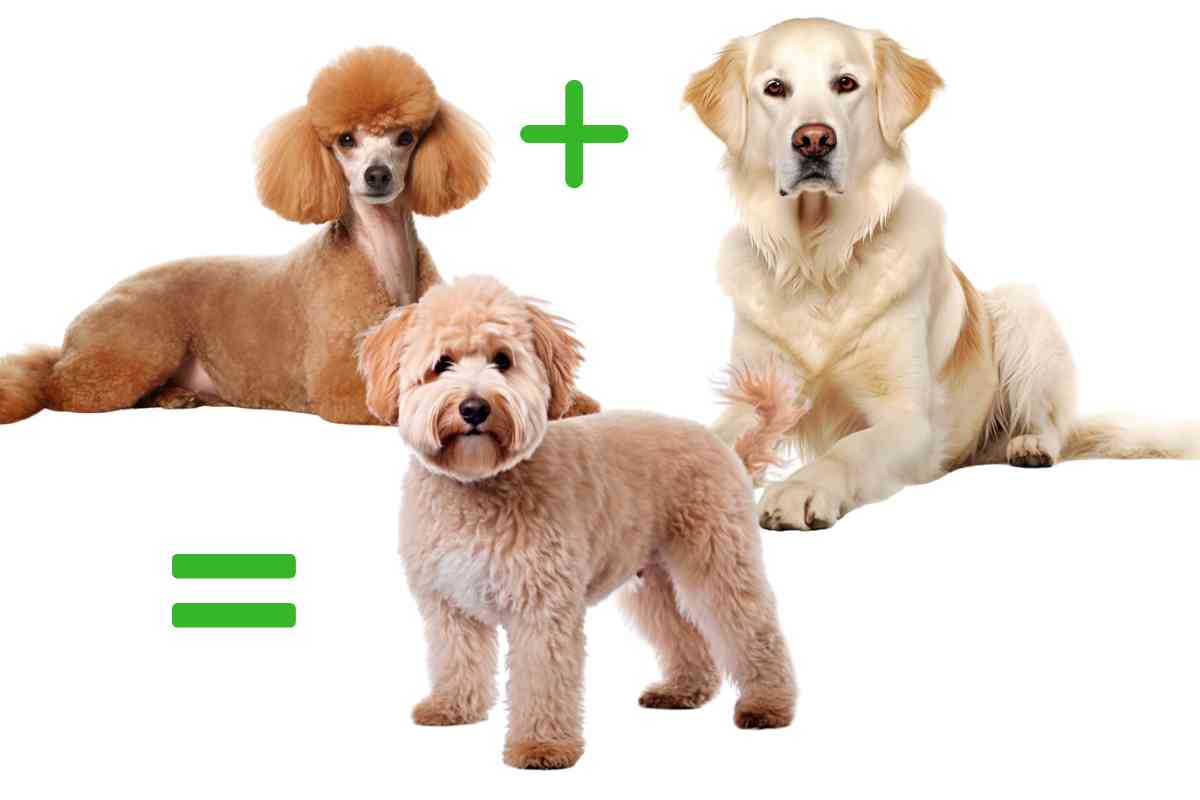
What is a Miniature Goldendoodle?
A Miniature Goldendoodle, affectionately known as a mini golden doodle, is a hybrid dog breed that results from the breeding of a Golden Retriever and a Miniature or Toy Poodle. This delightful pup combines the intelligence and hypoallergenic traits of the poodle lineage with the friendly and tolerant characteristics of the Golden Retriever, offering potential pet owners the best of both worlds.
Join us as we explore the critical considerations for prospective owners aiming to provide a loving home to a Mini Goldendoodle. Whether you are a seasoned dog owner or a first-timer, this article promises to equip you with knowledge that is both rare and essential for understanding the Miniature Goldendoodle.
Related posts:
- Mini Goldendoodle vs Goldendoodle: What’s the Difference?
- Mini Poodle vs Mini Goldendoodle: Which is the Best Companion Dog?
- F1 Mini Goldendoodle: Everything You Need to Know
Generations of Mini Goldendoodles
Understanding the generations of mini Goldendoodles is essential in predicting the potential size and characteristics of the puppy. Here is a breakdown of the different generations:
- First Generation (F1): This generation is the direct offspring of a Golden Retriever and a Mini or Toy Poodle. Due to the considerable size difference between the parent breeds, the size of the pups can be fairly unpredictable. While many first-generation mini goldendoodles find themselves comfortably situated in the medium size range, falling between their parent’s sizes, there are instances where they can be as large as a Golden Retriever or as petite as a Mini Poodle.
- Subsequent Generations: In efforts to achieve a more consistent small size, breeders may opt for multi-generational breeding, sometimes involving genetic testing. This approach often involves breeding a mini goldendoodle with a Poodle, or even breeding two mini goldendoodles. Through careful selection over multiple generations, breeders aim to foster a line of mini Goldendoodles that retain the desirable traits of both parent breeds while maintaining a predictable, small stature.
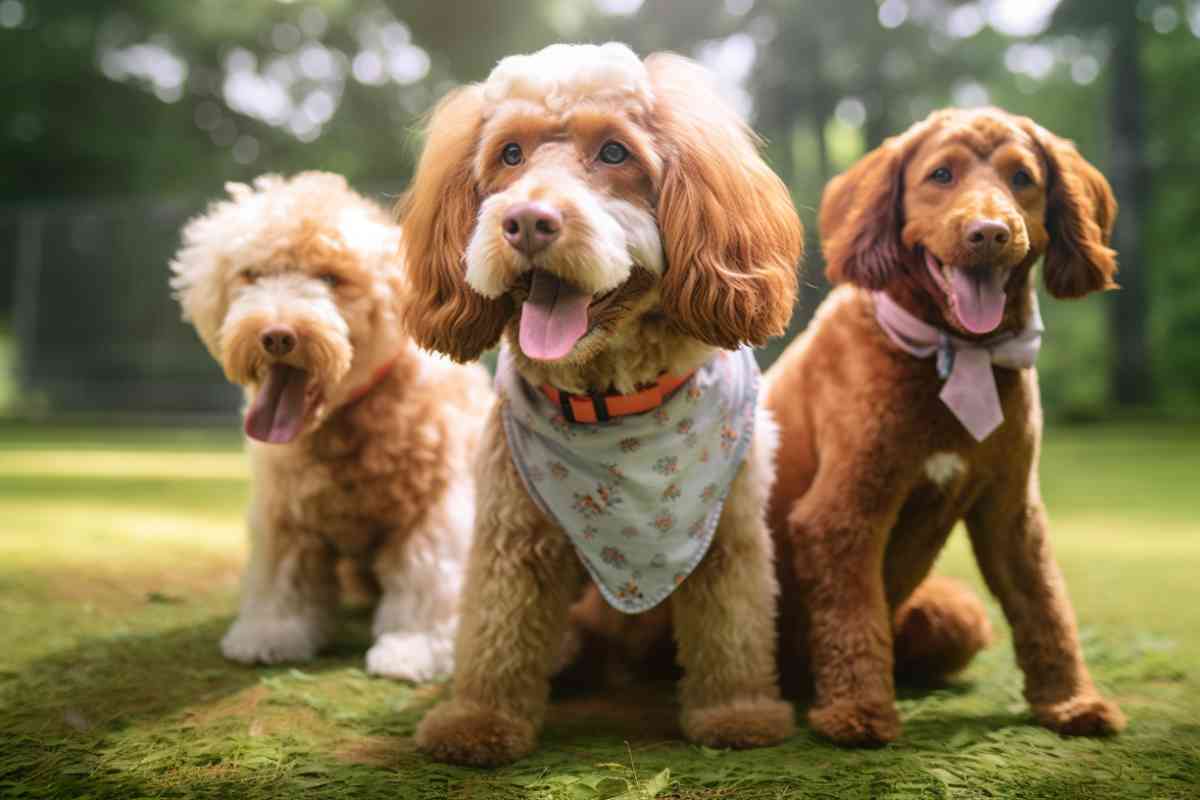
Is a Miniature Goldendoodle Purebred?
A Miniature Goldendoodle is not considered a purebred dog. It is a hybrid or designer breed created by crossing a Golden Retriever with a Miniature or Toy Poodle.
While both parent breeds, the Golden Retriever and the Poodle, are recognized as purebreds by organizations such as the American Kennel Club, the Miniature Goldendoodle itself is a mix of these two and therefore does not hold the purebred status.
What is a Teddy Bear Miniature Goldendoodle?
A Teddy Bear Miniature Goldendoodle is a specific type of Mini Goldendoodle that is bred from an English Golden Retriever and a Miniature or Toy Poodle to achieve a particular aesthetic that is reminiscent of a teddy bear, hence the name.
English Golden Retrievers are known for their lighter-colored coats, which are more evenly fluffy across their bodies, as opposed to being feathered around the neck, thighs, and tail.
This genetic trait translates to Mini Goldendoodle puppies having fluffier, lighter, and more “puffy” coats, rather than “flowy” ones. The coat colors can range from a light cream to a soft apricot, giving them a warm and inviting appearance.
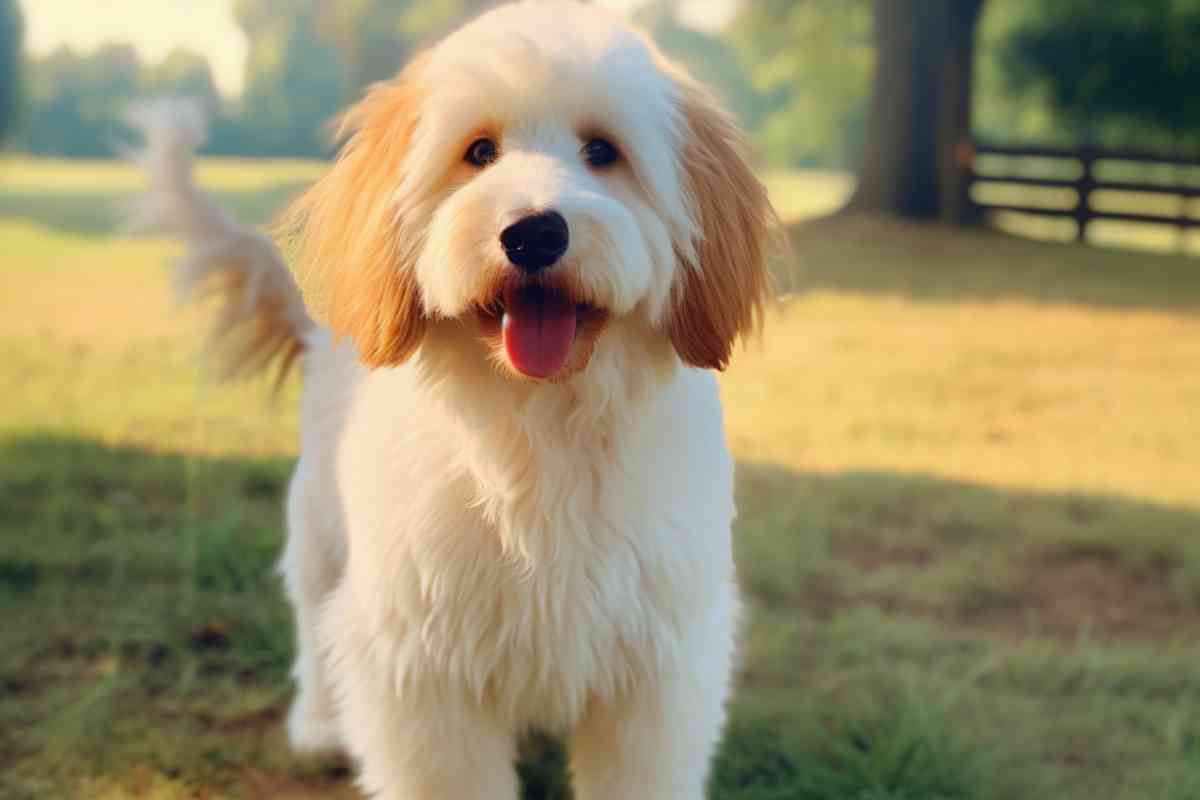
Mini Goldendoodle Temperament
Mini Goldendoodles generally share the same temperament characteristics as the standard Goldendoodle.
Both Golden Retrievers and Poodles are known for being loyal and trainable, which makes Mini Goldendoodles very likely to inherit these favorable traits.
However, there are personality traits where the parent breeds differ significantly, leading to a more variable range of personalities in their offspring.
To better understand the potential temperament of a Mini Goldendoodle, let’s look at a table contrasting the personality traits of Golden Retrievers and Poodles, and identify which traits Mini Goldendoodles are likely to inherit:
| Trait | Golden Retriever | Poodle | Mini Goldendoodle |
|---|---|---|---|
| Affability with people | Affable with everyone | Reserved, warms slowly to new people | Likely to range between affable and reserved |
| Loyalty | Steady and reliable | Loyal to their family | Very likely to be loyal |
| Friendliness with dogs | Friendly with other dogs | Can be selective | Likely to range in friendliness with other dogs |
| Protectiveness | Not protective | Protective | May range in protectiveness |
| Nature | Good-natured, a bit silly | Proud and dignified | Likely to exhibit a range of these traits |
| Personality | All “dog” | Has a human-like personality | May exhibit a blend of “dog” and “human-like” personality traits |
Given the blend of characteristics from both parent breeds, Mini Goldendoodles can be a delightful mix, showcasing a range of traits from being outgoing and affable like the Golden Retriever to being more reserved and dignified like the Poodle.
Proper socialization from a young age can help in nurturing the positive traits in Mini Goldendoodles, helping them grow into well-rounded companions.
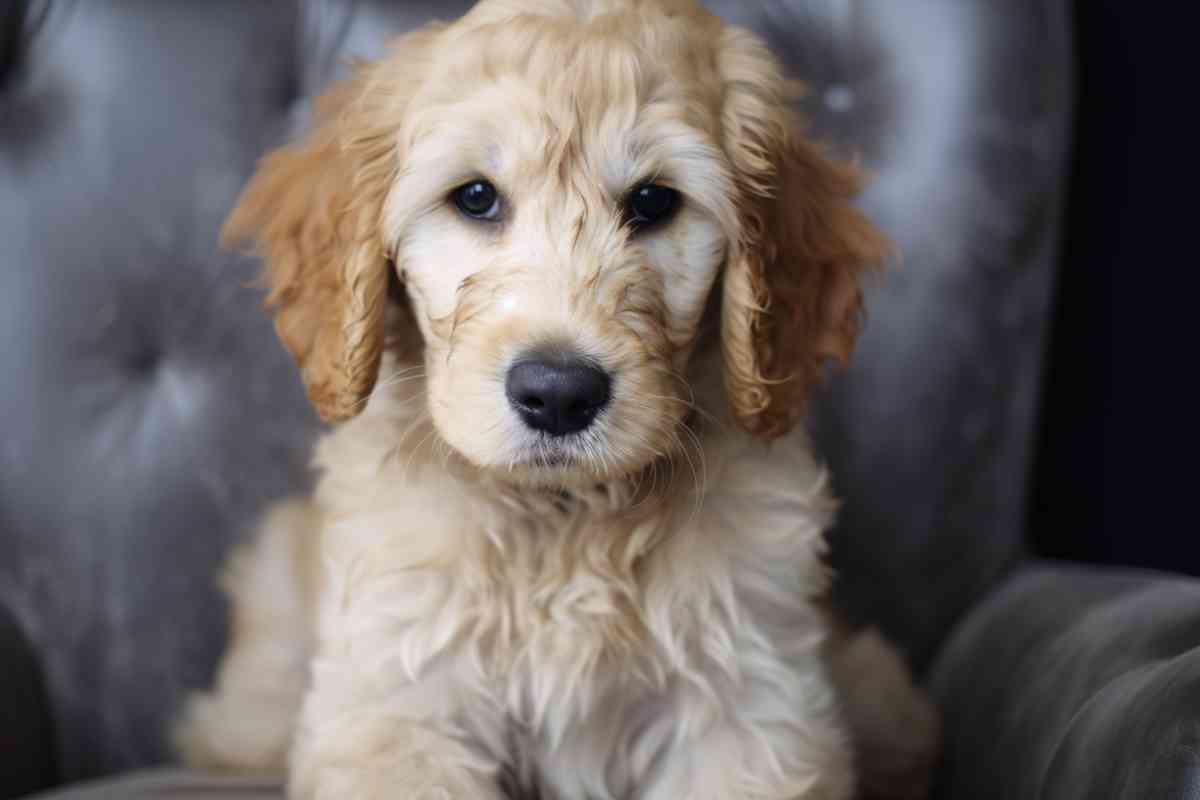
Mini Goldendoodle Coat Colors
When it comes to the vibrant world of Mini Goldendoodle coat colors, the possibilities are virtually endless, thanks to the rich palette of colors and patterns found in their Poodle parentage.
Poodles come in a variety of colors including white, black, apricot, cream, blue, gray, silver, brown, café-au-lait, and red, as well as patterns such as brindle, sable, and phantom.
A Spectrum of Colors and Patterns
Goldendoodles can potentially inherit any of the colors or patterns that are characteristic of Poodles. While they can showcase a wide array of colors, breeders often prefer breeding them with red or apricot Poodles, aiming to achieve that golden hue that is somewhat a signature of the Goldendoodles.

This results in a majority of Goldendoodles having warm tones such as golden, cream, or apricot, which beautifully complement their affectionate and sunny disposition.
The Fading Gene and Its Impact
An interesting phenomenon in the world of Goldendoodles is the presence of the fading gene, which is inherited from the Poodle lineage.
This gene causes the coat color to change as the doodle ages, often resulting in a lighter coat as they grow older. For instance, a pup that starts with a rich apricot coat might see its coat transition to a softer cream shade over the course of its life.
This adds a dynamic element to the appearance of the Goldendoodle, with their coat indicating their aging process through the years.
Understanding and Caring for the Mini Goldendoodle Coat
The coat of a Mini Goldendoodle is a beautiful blend of its parent breeds, the Golden Retriever and the Poodle, each bringing distinct characteristics to the table.
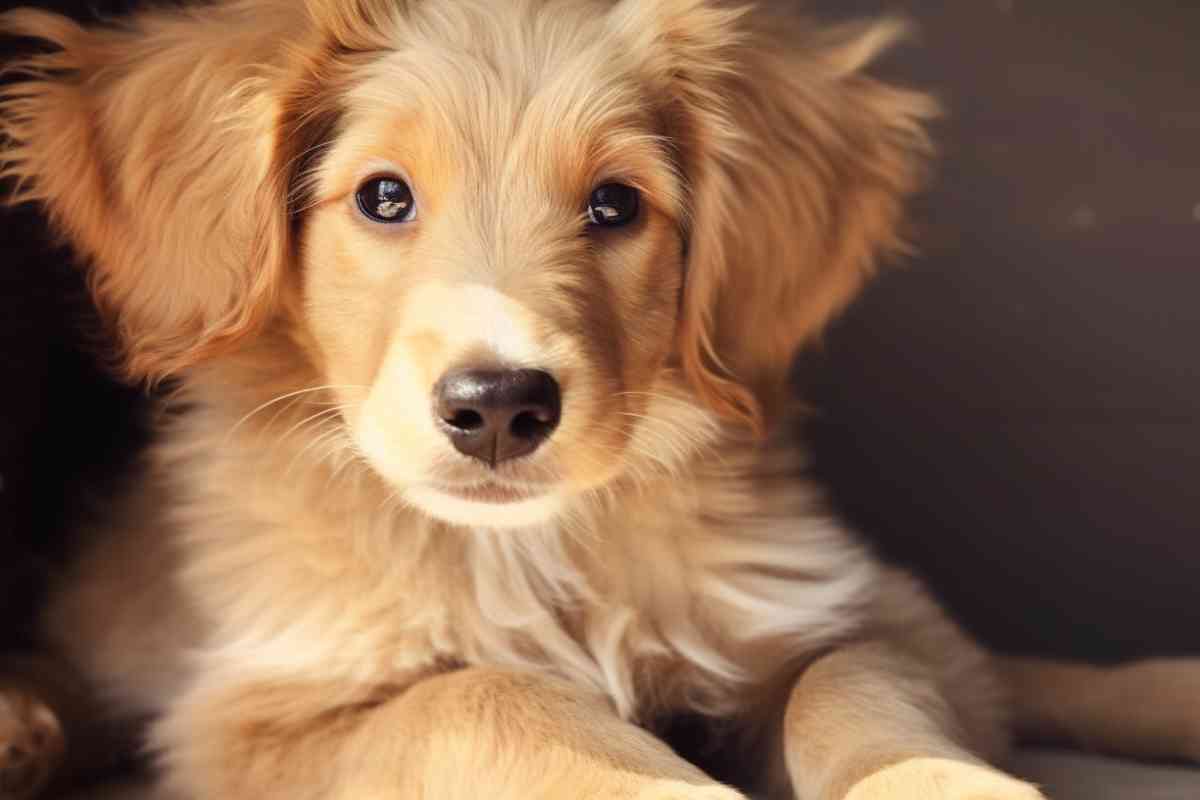
Shedding and Matting
When two non-shedding breeds are bred together, the offspring will also not shed. However, in the case of Goldendoodles, where a non-shedding Poodle is bred with a shedding Golden Retriever, the puppies may exhibit a range of shedding tendencies, often related to their coat texture.
Generally, the curlier the coat, the less shedding you can expect.
Mini Goldendoodles are more prone to matting due to the very different hair textures of their parent breeds. As hair sheds, it can get caught in the coat, leading to mats.
The propensity for matting increases as the Goldendoodle ages, with Poodles shedding their puppy coat as they mature.
When the adult coat comes in, it is likely to be curlier and denser, reflecting the Poodle’s coat characteristics.
Moreover, akin to Golden Retrievers that seasonally “blow” or shed their coat, Mini Goldendoodles might also experience seasonal shedding.
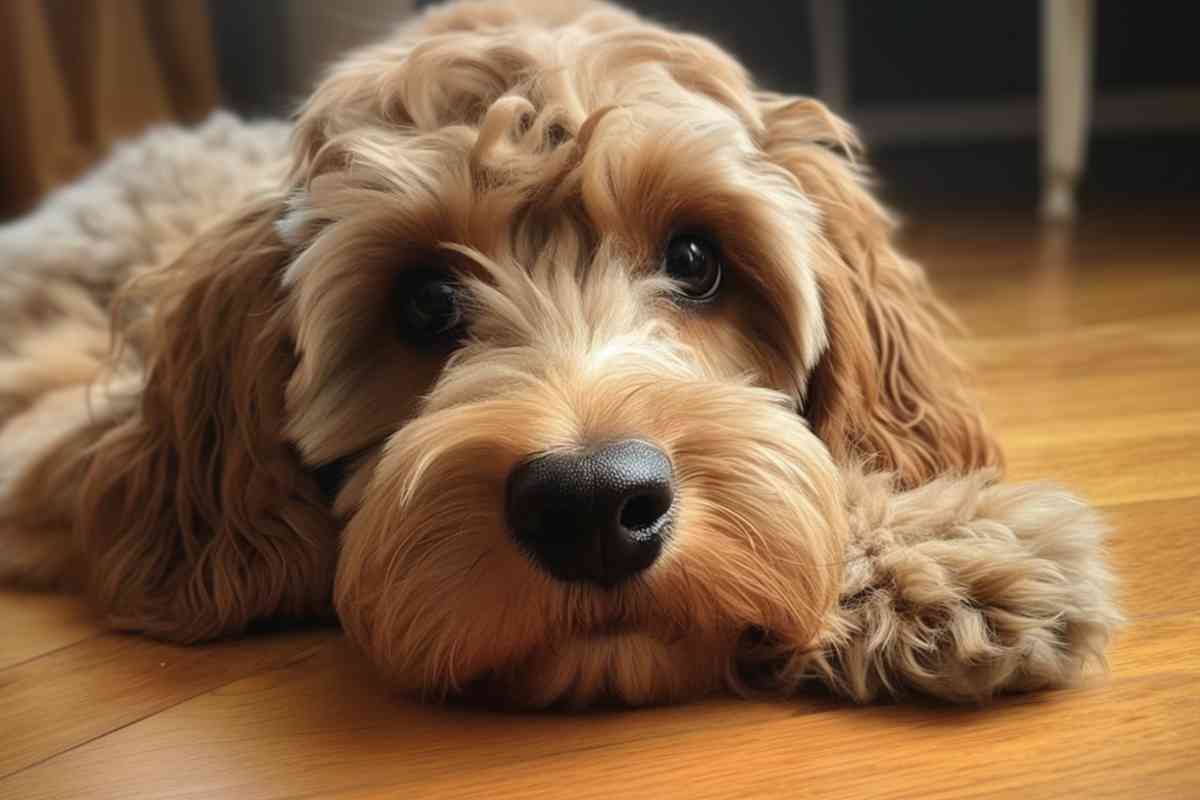
Coat Care Essentials
To maintain a healthy coat, regular grooming is essential. Here are some care tips:
- Brushing: Depending on the coat texture and the season, brushing to the skin every day or every few days is necessary to prevent tangles and mats.
- Clipping: A closer clip can ease coat management significantly. Very close clips might not require daily brushing, but areas where the coat is long enough to mat must be brushed frequently.
- Nutrition: Incorporating omega-3 oils and other nutrients in the diet can help in keeping the coat silky and less prone to matting.
- Moisturizing Treatments: Utilizing leave-in conditioners and moisturizing treatments designed for dogs can aid in maintaining a healthy coat.
By understanding the unique characteristics of the Mini Goldendoodle’s coat and providing the necessary care, you can ensure your furry friend not only looks great but feels great too, with a coat that is a testament to their vibrant and loving personality.
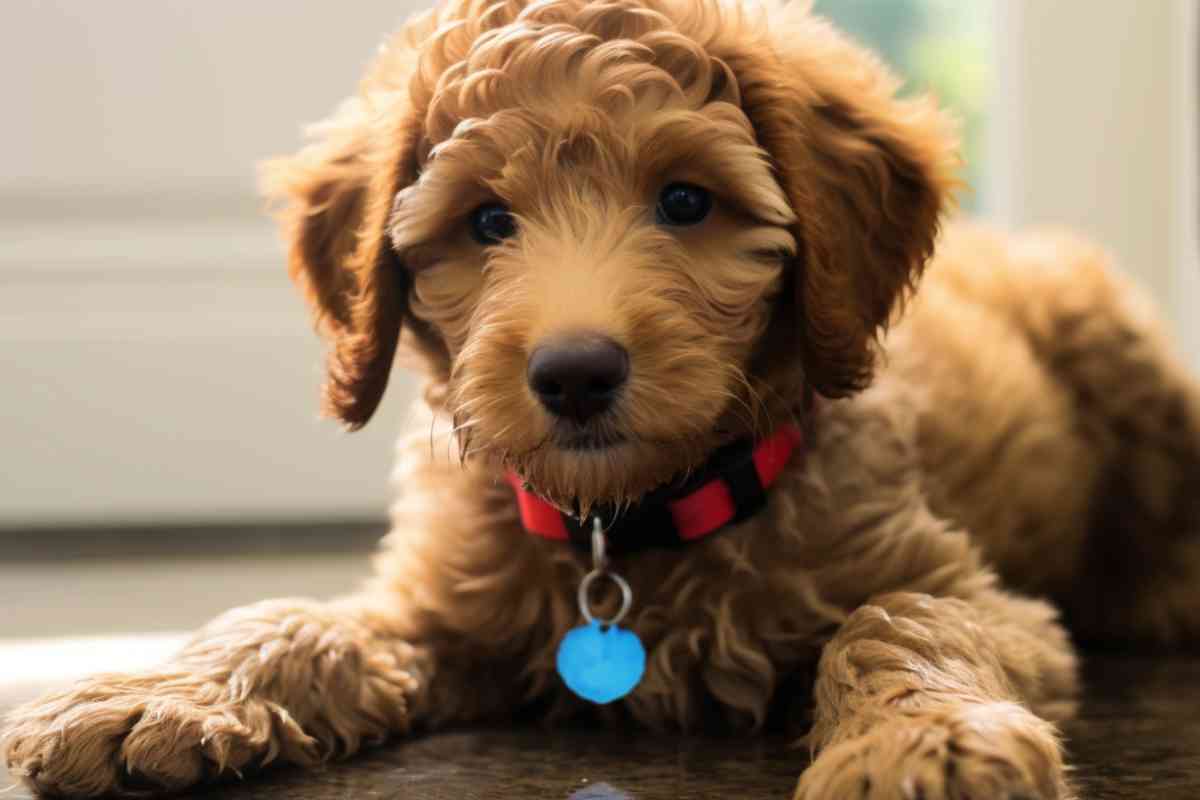
Goldendoodle Health: Understanding the Risks and Preventions
When bringing a Goldendoodle puppy into your home, it is crucial to understand the potential health risks associated with this breed and the measures you can take to ensure their well-being. Goldendoodles, a hybrid between Golden Retrievers and Poodles (be it standard poodle or miniature), inherit health risks from both parent breeds.
Common Health Issues in Parent Breeds
Both Golden Retrievers and Poodles are prone to a series of health issues, some of which are shared, increasing the likelihood of them appearing in Goldendoodles. Here are some common diseases in both breeds:
- Golden Retrievers:
- Hip Dysplasia
- Elbow Dysplasia
- Cataracts
- Progressive Retinal Atrophy (PRA)
- Hypothyroidism
- Willebrand’s Disease
- Heart Issues
- Osteosarcoma
- Mast Cell Tumors
- Lymphoma
- Poodles (Standard and Miniature):
- Hip Dysplasia
- Progressive Retinal Atrophy (PRA)
- Cataracts
- Addison’s Disease
- Gastric Dilatation-Volvulus (Bloat)
- Epilepsy
- Hypothyroidism
- Willebrand’s Disease
- Patella Luxation
- Blindness

Overlapping Health Concerns in Goldendoodles
Goldendoodles are more likely to inherit the diseases that are common in both parent breeds, including:
- Progressive Retinal Atrophy (PRA), which can lead to blindness
- Cataracts
- Hypothyroidism
- Willebrand’s Disease
- Patella issues
The Role of Hybrid Vigor
The concept of hybrid vigor suggests that first-generation mixes (F1 Goldendoodles) might be healthier, potentially carrying but not expressing certain disease genes.
However, it is essential to note that any Goldendoodle could inherit any of the diseases prevalent in their parent breeds.
Choosing Reputable Breeders
To mitigate the risk of inherited diseases, opt for reputable breeders who screen for diseases in their breeding stock, ensuring they do not pass them onto the puppies.
Responsible breeding can play a pivotal role in nurturing a healthy litter, promoting longevity and quality of life for your Goldendoodle.
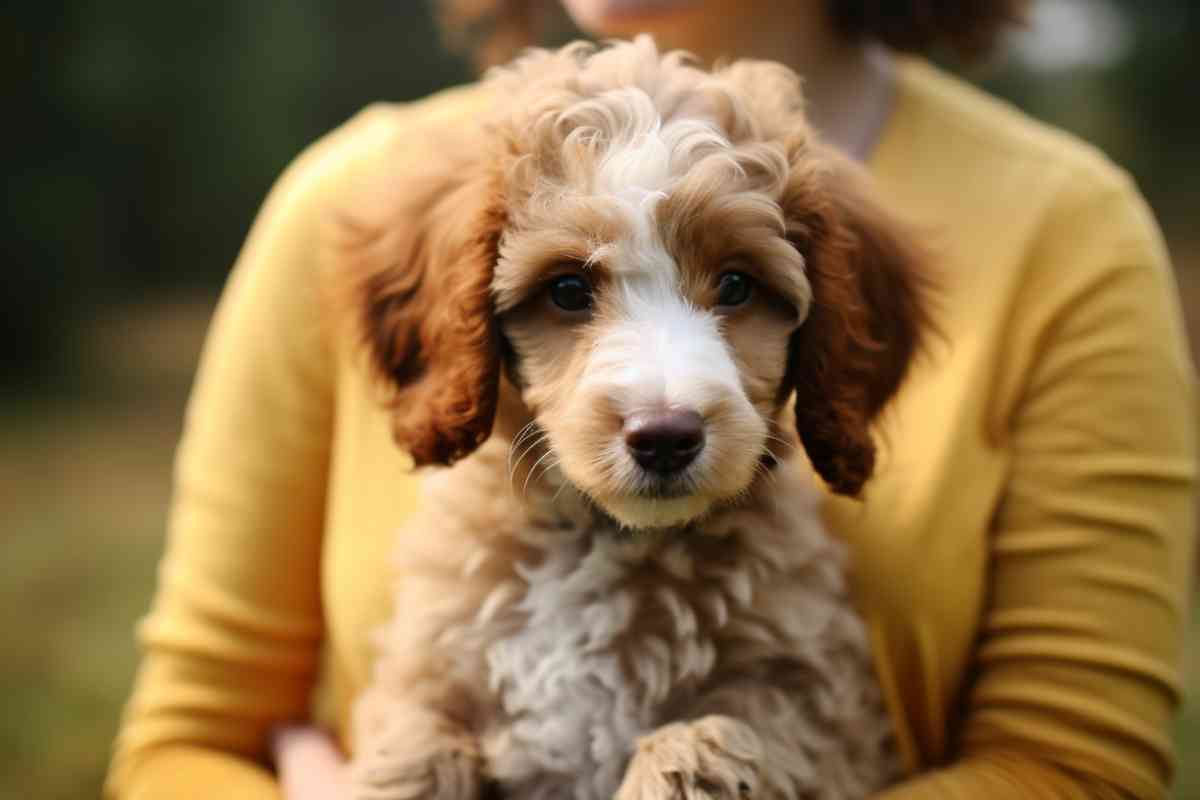
Health Care and Maintenance
Regular check-ups with a vet, proper grooming, and attention to their teeth and nails can go a long way in maintaining your Goldendoodle’s health.
Additionally, providing a living environment conducive to their health, be it in apartments with considerations for apartment-living or houses with yards, is essential.
Understanding the potential health risks and taking proactive measures can help in fostering a happy and healthy life for your Goldendoodle, allowing them to be a joyful addition to your family for many years to come.
Understanding Merle Goldendoodles
In the diverse world of Goldendoodle coat patterns, the merle pattern stands out as a unique and somewhat controversial variant. This is because neither the Golden Retriever nor the Poodle naturally carries the merle gene, indicating that at some point, another breed was introduced to the lineage to achieve this pattern.
It is widely speculated that this breed might be the Australian Shepherd, which naturally carries the merle gene.
The Merle Gene and Its Implications
The merle gene creates a mottled pattern in the coat, with patches of diluted color interspersed with the original coat color.
While this pattern is visually striking, it comes with significant health risks, especially when breeding two merle-patterned dogs together. This pairing can result in “double merle” offspring, which are associated with a host of health problems including deafness, blindness, and other serious congenital issues.
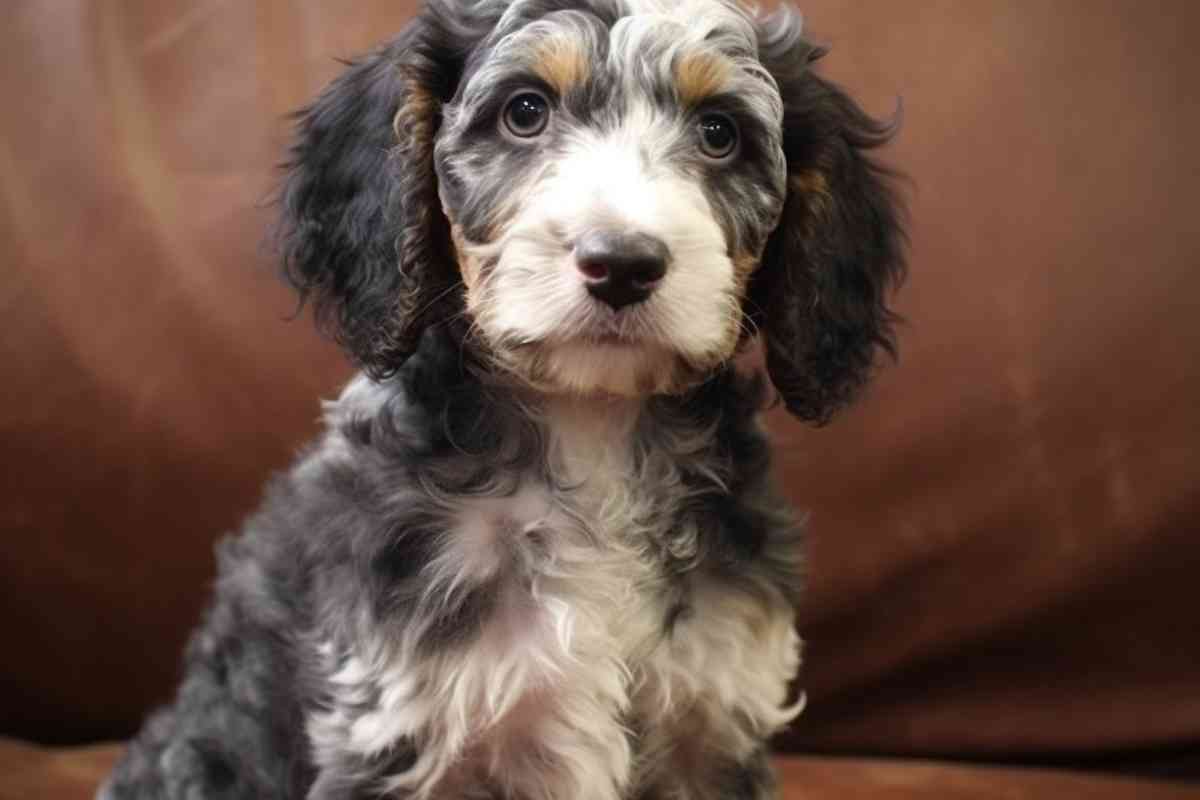
Health Precautions for Merle Goldendoodle Owners
Owners of merle Goldendoodles need to be particularly vigilant about the health care of their pets. One critical aspect is their heightened sensitivity to certain heartworm medications, a trait they potentially inherit from the Collie breed, which is known to be hypersensitive to drugs like ivermectin found in some heartworm preventatives.
Moreover, these drugs can sometimes be found in livestock droppings, posing a risk to merle Goldendoodles residing in rural areas.
It is imperative for owners to be well-researched and cautious, avoiding medications with these compounds and being vigilant about the environments they expose their merle Goldendoodles to.

Responsible Ownership
If you find yourself enchanted by the unique appearance of merle Goldendoodles, it is crucial to approach ownership responsibly. Ensure to work with reputable breeders who prioritize the health of the litter over coat patterns.
Being informed and cautious about the specific needs and potential health risks associated with the merle pattern can help in fostering a safe and happy life for your merle Goldendoodle.
Trainability and Exercise Needs of Mini Goldendoodles
When it comes to trainability and exercise needs, Mini Goldendoodles are a breed that stands out, inheriting the intelligence and eagerness to please from their parent breeds, the Golden Retriever and the Poodle.
Trainability
Mini Goldendoodles are known for their remarkable trainability, a trait they inherit from their highly intelligent and trainable parent breeds.
These dogs have a natural propensity to learn and can be trained to perform a wide array of tasks, showcasing a versatility that is truly impressive. In fact, Goldendoodles were originally bred with the intention of creating a breed with high service dog potential, reflecting their trainable nature and ability to adapt to various roles.
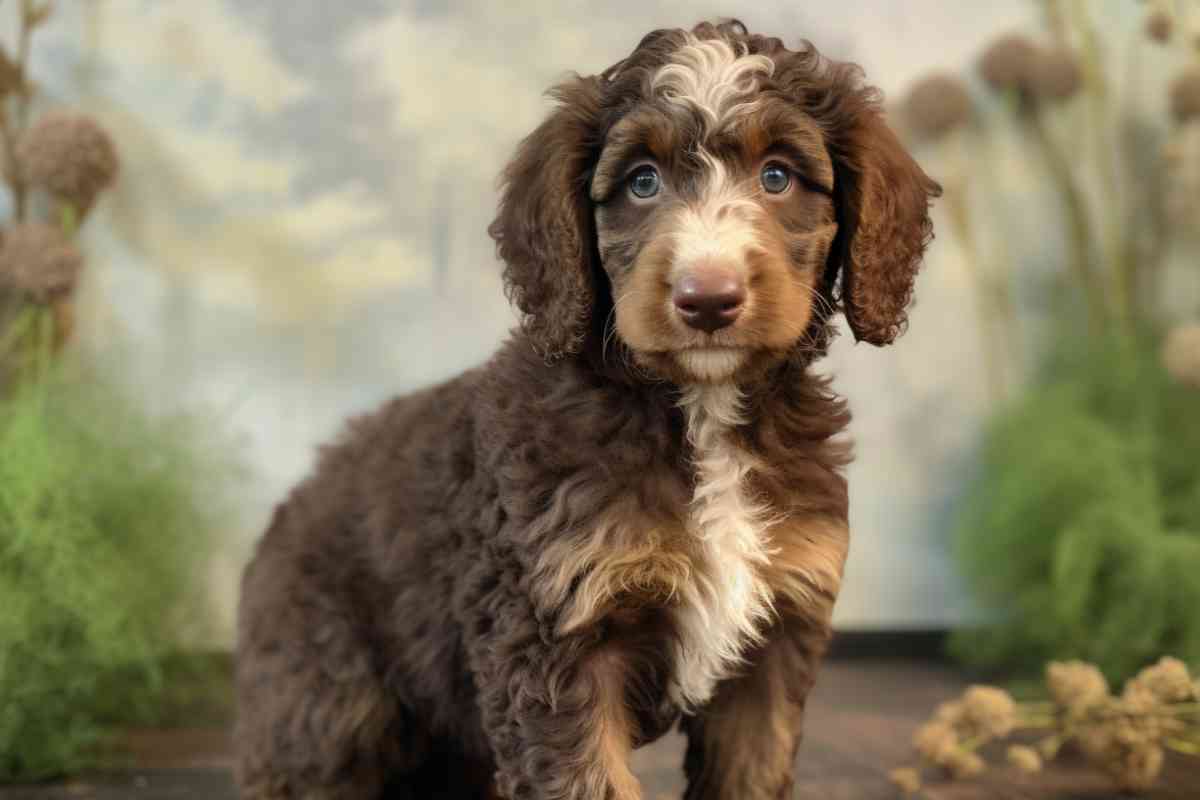
Exercise Needs
Both Golden Retrievers and Poodles are dependent on their human companions for entertainment and stimulation. Your Mini Goldendoodle will likely look to you for engagement in activities such as playing fetch, agility training, or long walks.
It is essential to actively encourage them to exercise, as they are not inclined to occupy themselves or exercise extensively when left alone in the yard.
Given that both parent breeds were originally water retrievers, it is no surprise that most Goldendoodles have a natural affinity for water. They are excellent swimmers and generally love water-based activities, making swimming a fantastic option for both exercise and enjoyment.
Potential Challenges
While Mini Goldendoodles are incredibly trainable, they can exhibit hyperactivity, destructive behavior, and a propensity for separation anxiety if their training and exercise needs are not met adequately.
It is vital to provide them with sufficient mental and physical stimulation to foster a balanced temperament.
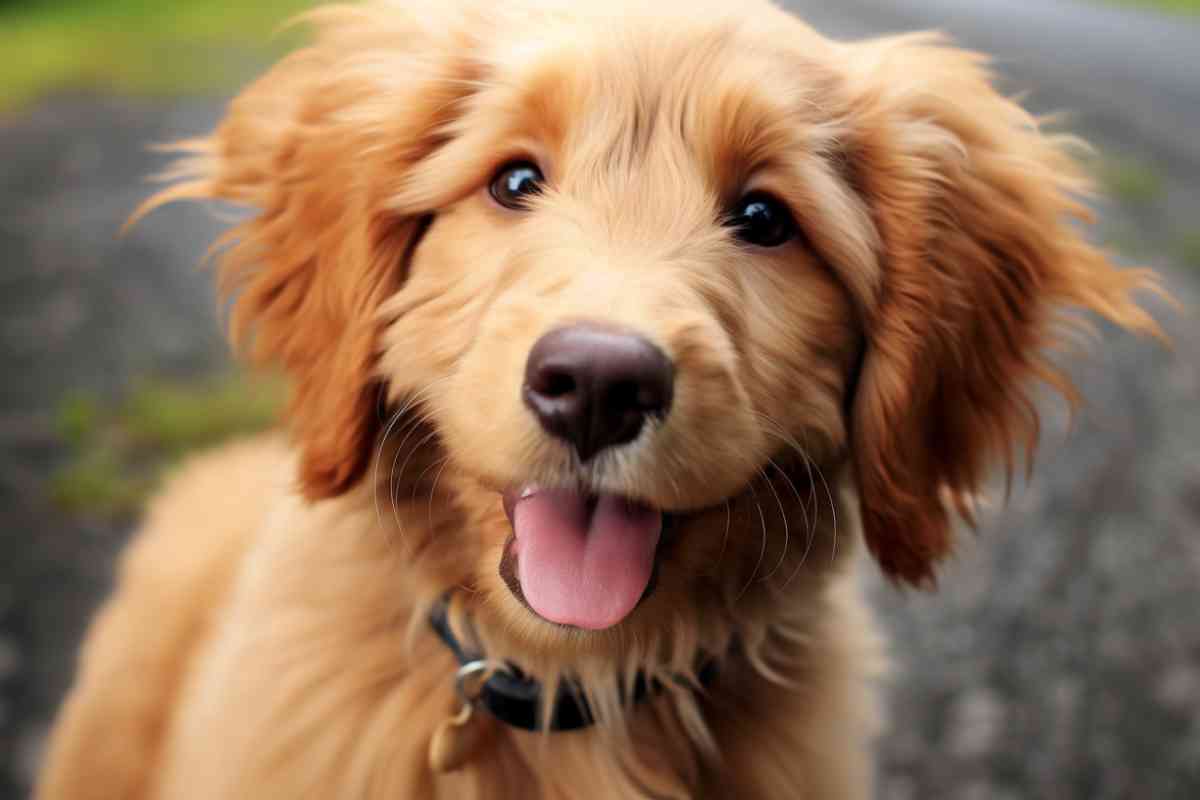
Price and Availability of Goldendoodles: What Prospective Owners Should Know
In recent years, Goldendoodles have seen a surge in popularity, making them readily available in various markets.
However, this availability comes with its own set of challenges, including the rise of puppy mills and backyard breeders. Here, we delve into the crucial aspects prospective owners should consider when it comes to the price and availability of Goldendoodles.
Availability and Potential Pitfalls
While Goldendoodles are widely available, it is essential to approach the buying process with a discerning eye. The market is rife with puppy mills and backyard breeders, which often prioritize profit over the well-being of the animals.
Prospective owners should insist on visiting the place where the dogs are raised and have an opportunity to meet the parents. This not only gives you a glimpse into the environment your potential furry family member is coming from but also allows you to assess the temperament and health of the parent dogs.
Verifying Parentage and Health Screenings
When considering a Goldendoodle puppy, it is prudent to ask for the papers of the parent dogs. Purebred parents should be health screened and registered with the American Kennel Club (AKC).
In the case of doodle parents, they should be health screened and originate from AKC registered parents, ensuring a lineage that adheres to the highest standards of health and well-being.
Pricing Considerations
The price range for Mini Goldendoodles can vary significantly, ranging from a couple of hundred to a couple of thousand dollars.
While it might be tempting to opt for a less expensive option, it is worth considering that a higher price point often correlates with a more predictably sized, healthy, and happy Mini Goldendoodle.
Investing more initially can potentially save you from higher costs in health care and other issues down the line.
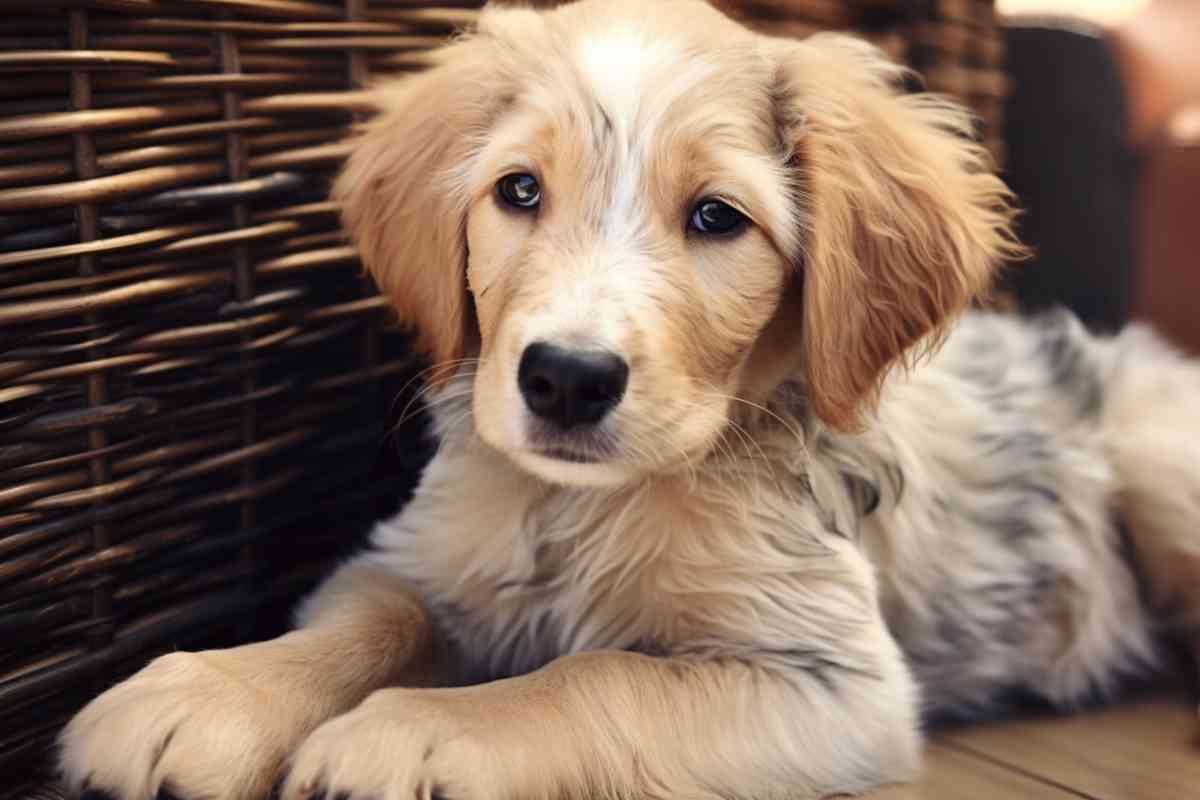
Who is the Mini Goldendoodle Best For?
When considering adding a Mini Goldendoodle to your family, it is essential to understand the kind of environment and lifestyle that suits them best.
These affectionate and intelligent dogs have specific needs and characteristics that make them a perfect fit for certain homes.
Apartment Living
Thanks to their moderate size and adaptable nature, Mini Goldendoodles can thrive in various living situations, including apartments.
However, apartment living requires owners to be diligent in providing sufficient exercise and mental stimulation to keep their Mini Goldendoodle happy and healthy. Their low-shedding coats also make them a great choice for smaller living spaces where grooming and cleanliness are a priority.
Families with Children
Mini Goldendoodles are known for their gentle and affectionate nature, making them excellent companions for families with children. Their playful demeanor and tolerance can be a joy for kids, fostering a loving bond that enriches the family dynamic.
Compatibility with Other Pets
Thanks to their friendly and non-aggressive nature inherited from the Golden Retriever parent, Mini Goldendoodles generally get along well with other pets, but they can be selective when meeting new dogs, thanks to the protective Poodle side.
Proper socialization from a young age is crucial to foster harmonious relationships with other animals.
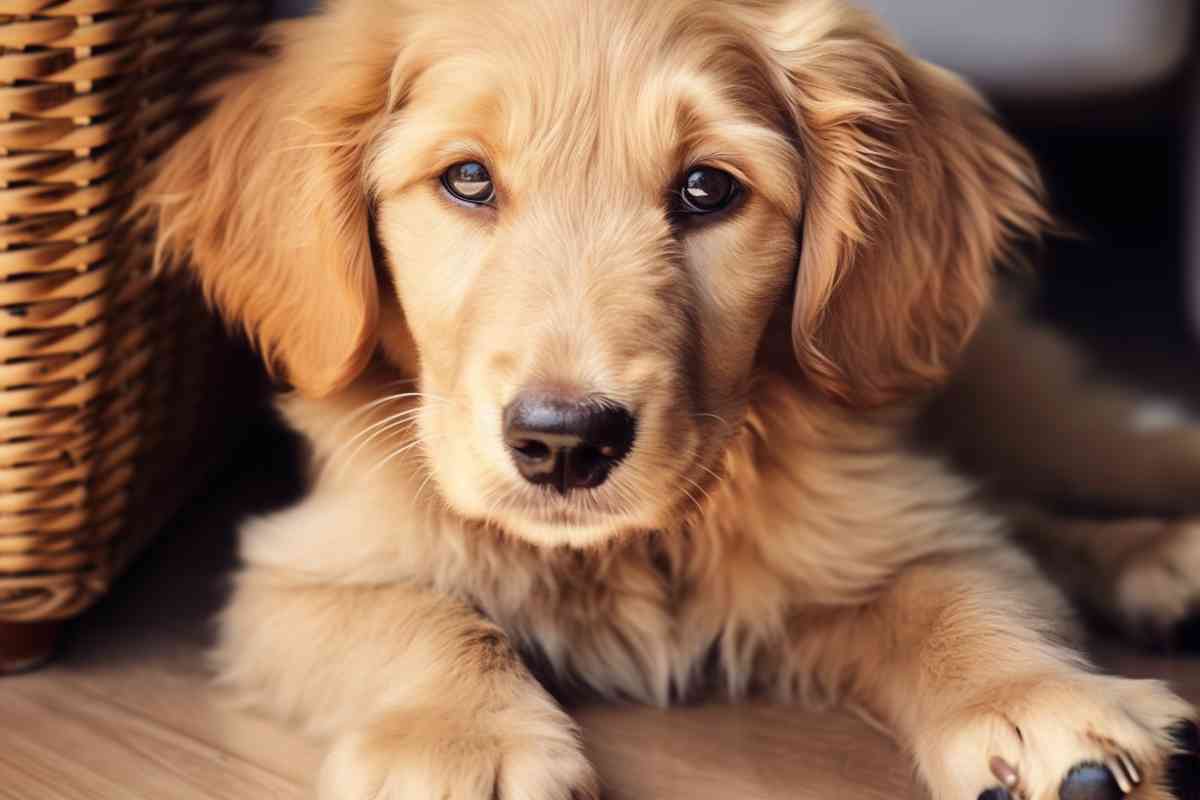
Active Individuals and Outdoor Enthusiasts
For individuals who love outdoor activities, Mini Goldendoodles can be a delightful companion.
Their love for water and natural retrieving abilities make them great partners for water activities. Moreover, their intelligence and trainability mean they can be a joy to train in agility courses and other dog sports.
Service and Therapy Roles
Originally bred with the intention of creating excellent service dogs, Mini Goldendoodles have a high potential in service and therapy roles. Their trainable nature and eagerness to please make them suitable candidates for various assistance and therapy jobs.
Conclusion
In conclusion, Mini Goldendoodles are well-suited for a wide range of individuals and families. Whether you are a family with young children, an individual living in an apartment, or someone looking for a service or therapy dog, a Mini Goldendoodle can be a loving and joyful addition to your life.
Frequently Asked Questions
What is the typical size of a miniature Goldendoodle?
A miniature Goldendoodle is a crossbreed between a Golden Retriever and a miniature Poodle. They are smaller in size than a standard Goldendoodle, usually weighing between 15 and 35 pounds and standing around 13 to 20 inches tall at the shoulder.
What are some potential drawbacks of owning a mini Goldendoodle?
Miniature Goldendoodles are generally healthy and well-behaved dogs, but they do have some potential drawbacks. They may have a high energy level, which can be difficult for some owners to manage. They may also be prone to separation anxiety and require a lot of attention from their owners. Additionally, they may be more expensive than other dog breeds due to their popularity.
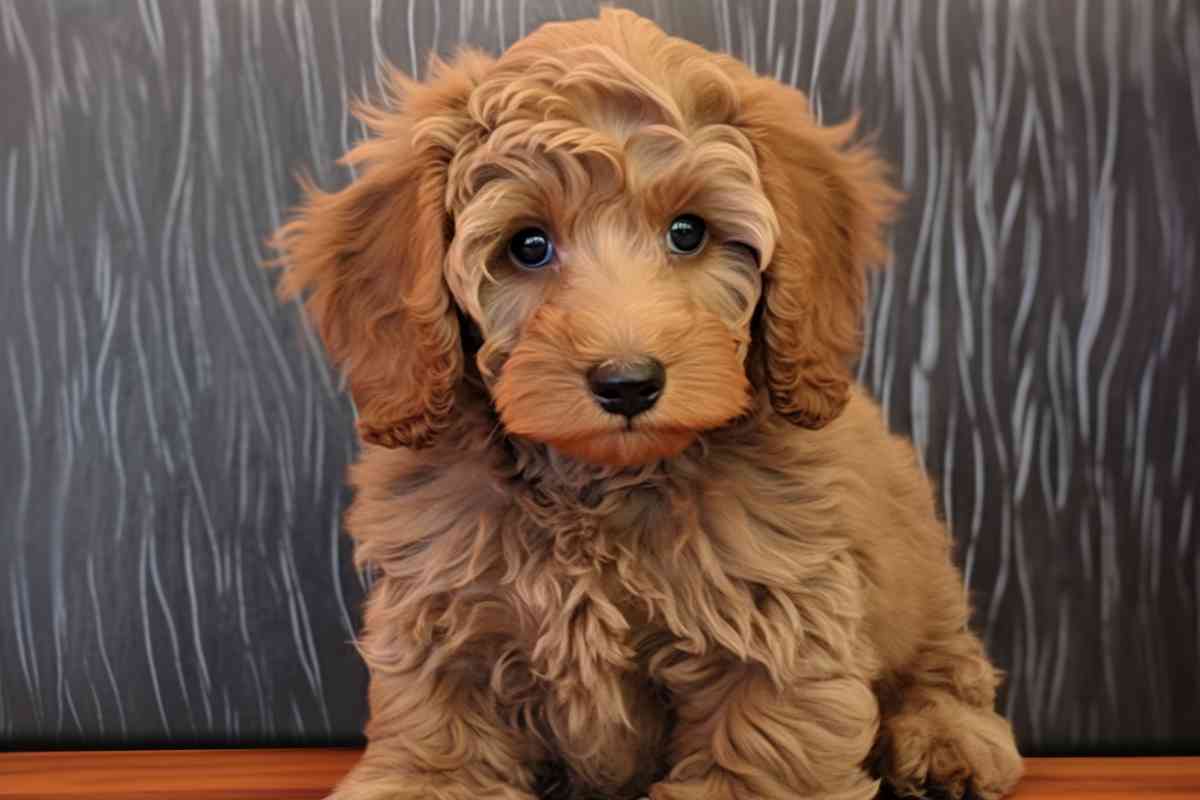
Are mini Goldendoodles good pets for families?
Miniature Goldendoodles are great pets for families with children. They are affectionate, playful, and enjoy spending time with their owners. They are also intelligent and easy to train, which makes them a good choice for families who want a dog that will be easy to teach new tricks.
What is the temperament of a mini Goldendoodle?
Miniature Goldendoodles are known for their friendly and outgoing temperament. They are affectionate and love to be around people, making them great family pets. They are also intelligent and easy to train, which makes them a good choice for first-time dog owners.
How much can one expect to pay for a miniature Goldendoodle?
The cost of a miniature Goldendoodle can vary depending on the breeder and the dog’s lineage. On average, one can expect to pay between $1,500 and $3,000 for a miniature Goldendoodle. It’s important to do research when choosing a breeder and make sure they are reputable and ethical.
What are some common health issues that mini Goldendoodles may experience?
Miniature Goldendoodles are generally healthy dogs, but they may be prone to certain health issues. Some common health issues include hip dysplasia, ear infections, and allergies. It’s important to take your dog to the vet regularly for check-ups and to keep up with their vaccinations and preventative care.
| Common Health Issues | Symptoms |
|---|---|
| Hip dysplasia | Limping, difficulty standing up or lying down, reluctance to exercise |
| Ear infections | Redness or swelling of the ear canal, head shaking, discharge from the ear |
| Allergies | Itching, scratching, redness of the skin, ear infections |